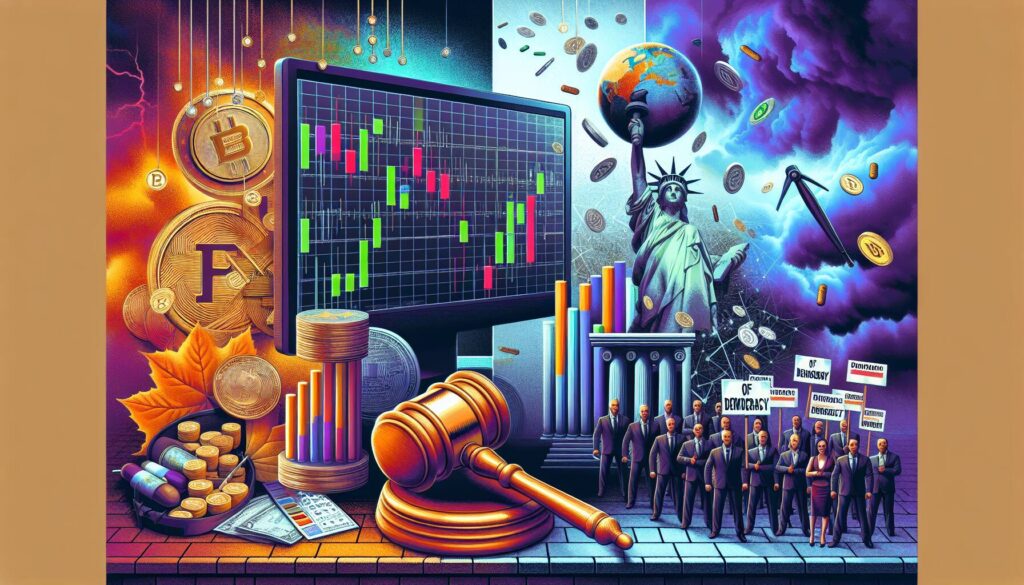On Thursday, China announced new export controls on rare earth materials, signaling a significant shift in the landscape of global supply chains and market sentiment. The Chinese Ministry of Commerce’s latest rules, which will take effect on December 1, require foreign companies to secure a dual-use license when exporting products that include Chinese-origin rare earth elements or related technologies. This development could shake up various sectors, from semiconductors and AI to defense.
China, a dominant player in the production of rare earths, has taken what many consider a strategic move that may impact international trade dynamics profoundly. According to geopolitical strategist Velina Tchakarova, this action effectively grants Beijing a form of veto power over critical segments of the global supply chain. With potential constraints on exports related to military or AI applications—including advanced technology like 14nm chips—this intervention could lead to higher prices and supply disruptions across industries like electric vehicles (EVs) and turbines.
“China just weaponized rare earths – again, but this time globally,” said Tchakarova, illustrating the far-reaching effects of the new restrictions.
As concerns grow over the implications for AI stocks and other technology sectors, investors may begin to hedge their portfolios. This risk aversion in traditional markets could potentially trickle down to the cryptocurrency space, causing further fluctuations in an already volatile environment. With a pivotal meeting between Chinese President Xi Jinping and U.S. President Donald Trump looming at the APEC summit, these new export controls might also grant China a strategic advantage in ongoing trade negotiations.

China’s Rare Earth Export Controls: Implications for Global Supply Chains
Key points regarding China’s recent export controls on rare earth materials:
- New Export Restrictions Announced:
- China’s Ministry of Commerce introduced sweeping export controls on rare earth materials and related technologies.
- The rules take effect on December 1, requiring foreign companies to secure a dual-use license for Chinese-origin products.
- Impact on Global Supply Chains:
- China’s dominance in the production of rare earths is crucial for various industries, including electronics, AI, and defense.
- Potential supply constraints may affect risk sentiment, particularly in the stock market, including vulnerabilities in AI-focused companies.
- Influence on Market Sentiment:
- Risk-off sentiment in AI stocks could extend to the cryptocurrency market, impacting investor behavior.
- Geopolitical tensions could rise, affecting trade relationships and investment strategies globally.
- License Denial for Military Applications:
- Licenses will be denied for military or AI-related uses, affecting critical technologies such as advanced chips and military-grade AI systems.
- This restriction effectively gives China significant control over global supply chains.
- Leveraging in Trade Talks:
- The timing may enhance Beijing’s negotiating power in upcoming U.S. trade discussions.
- It highlights the geopolitical landscape where technology and resources are intertwined with national strategies.
China’s Rare Earth Export Controls: A Game-Changer for Global Supply Chains
The recent announcement by China regarding enhanced export controls on rare earth materials has sent shockwaves through multiple industries, particularly semiconductors, AI, and defense. This decisive action intensifies China’s position as a key player in the rare earth market, which is crucial for various technological advancements and military applications.
Competitive Advantages: The control over rare earth exports allows China to exert significant influence on global supply chains. By mandating that foreign companies obtain a dual-use license, Beijing not only aims to safeguard its resources but also to gain leverage in international trade discussions, especially with the U.S. This move could potentially bolster local industries and create a strategic advantage by restricting access to essential technologies for foreign competitors.
Competitive Disadvantages: However, this escalation may provoke backlash from global markets, leading to potential disruptions in supply chains and increased costs for manufacturers reliant on these materials. Industries such as electric vehicles (EVs) and AI may face acute shortages, resulting in a ripple effect that could suppress technological innovation and consumer prices. Investors might also react negatively, shifting sentiment and leading to market volatility, particularly in sectors already vulnerable to geopolitical tensions.
This development could benefit countries or companies that invest in alternative sources of rare earth elements or technologies that lessen dependence on China’s supplies. Conversely, businesses entrenched in traditional manufacturing or those heavily reliant on AI systems could find themselves in a precarious position, needing to adapt swiftly to these new realities. The potential for rising prices and supply shortages could also complicate relationships within the global tech ecosystem, forcing countries to rethink their procurement strategies.

















